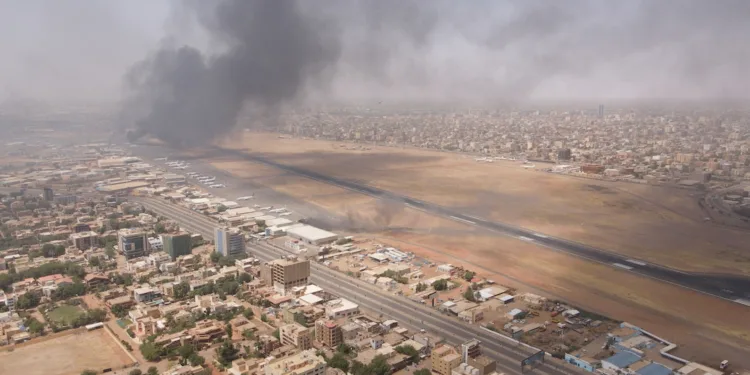Sudan has been engaged in a war for over a year and the United States is pushing to get humanitarian help while threatening to push for the United Nations Security Council action if there’s no quick response.
The United States issued a warning, stating its intention to urge the U.N. Security Council to intervene in facilitating aid delivery to famine-stricken areas in Sudan.
This intervention could involve permitting cross-border aid deliveries from Chad if the Sudanese armed forces experience difficulty in restoring unrestricted access to humanitarian aid.
Chad has opened its doors to over two million displaced Sudanese and quite a lot of resources have been used to this effect. If Sudan were to get help from the United Nations through Chad as proposed by the US, would that not put more strain on the neighbouring country?
Sudan’s war broke out in Khartoum, Sudan’s capital, on the fifteenth of April 2023 as an escalating power struggle between the two main factions of the military regime has been on for a year.
There’s a faction loyal to General Abdel Fattah al-Burhan, the country’s de facto ruler who is against other factions, paramilitaries of the Rapid Support Forces (RSF). They are a collection of militia who follow the former ruler, General Mohamed Hamdan Dagalo, popularly known as Hemedti.
This war has led to over seven million (7.4 million) people being displaced by fighting within Sudan and neighbouring countries. Six million out of these displaced people have been sheltering mainly with host communities in six thousand, eight hundred and eighty-two (6,282) locations across eighteen states in Sudan.
US Ambassador to the United Nations, Linda Thomas-Greenfield emphasized the impact of the intensifying crisis, highlighting the fact that millions of people are on the brink of starvation while facing obstacles due to the actions of the war perpetrators, Sudanese armed forces (SAF) and Rapid Support Forces (RSF).
Also Read: Rwanda, Tanzania To Boost Trade Ties
The SAF’s interference with aid efforts from Chad into Darfur has prompted the United States to suggest cross-border aid delivery as a critical means of providing a lifeline to those in need.
The United States has recently highlighted not just the pressing urgency for humanitarian aid in Sudan but has also levied accusations of war crimes against the warring factions (SAF and RSF) involved in the conflict.
This dual approach of addressing immediate humanitarian needs while pursuing accountability for atrocities reflects the gravity of the situation in Sudan.
As diplomatic efforts are been pushed for a potential resumption of peace talks, with Saudi Arabia likely playing a pivotal role, the international community’s attention is keenly focused on finding diplomatic solutions and intensifying humanitarian efforts to alleviate the suffering of the Sudanese people.
Hopefully, these diplomatic initiatives will pave the way for lasting and sustainable peace in Sudan.
In considering potential solutions, the Security Council has looked to past experiences, particularly the authorization of cross-border humanitarian operations in Syria.
This historical precedent highlights the importance of swift and decisive action in authorizing cross-border aid deliveries into Sudan to prevent further humanitarian tragedy and ensure that aid reaches those affected by the war.
The ongoing conflict in Sudan has resulted in what is widely recognized as one of the most severe displacement crises globally, with over eight million individuals forced to flee their homes internally or seek refuge across Sudan’s borders in the past year.
This staggering displacement figure paints a heartbreaking picture of the widespread impact of the conflict on civilian populations.
Among these displaced individuals, close to two million have sought shelter in neighbouring countries, adding considerable strain to Chad and South Sudan as they cope with hosting these refugees.
This influx of refugees has created significant challenges for both countries, including increased demand for humanitarian assistance, strain on limited resources, and additional pressure on already fragile infrastructure.
With the constraints experienced by Chad for accommodating displaced Sudanese, the United States is still proposing that the United Nations Council provide aid through Chad.










